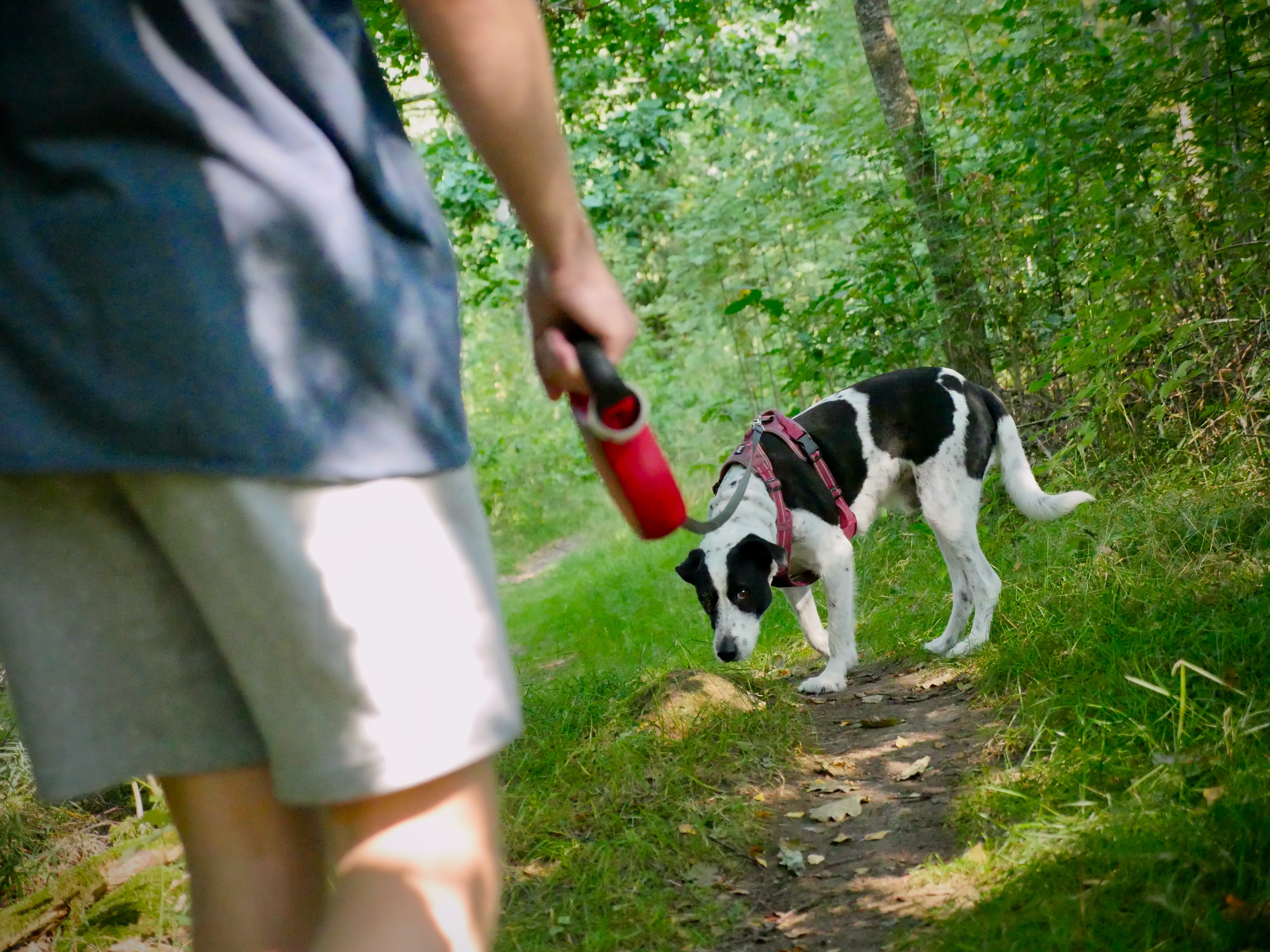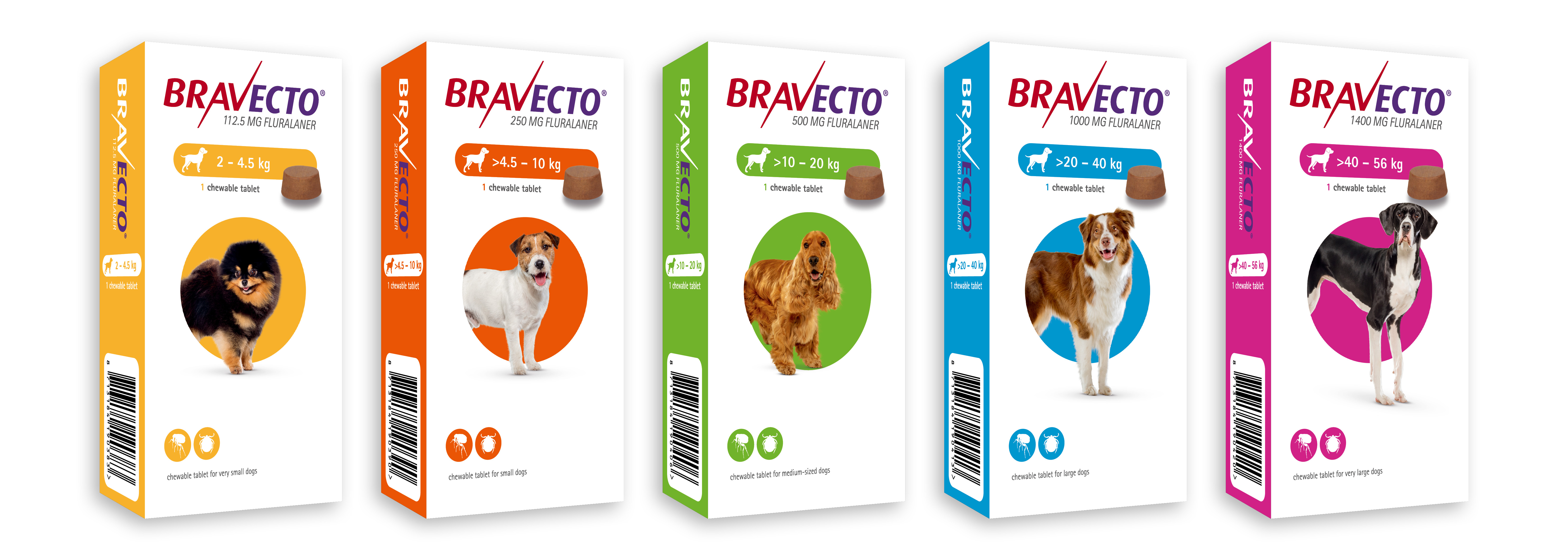Summers in Hong Kong are humid and rainy, providing an ideal condition for parasite proliferation. Taking pets outdoors increases their vulnerability to parasites like ticks, flea, and other. The former can lead to major illnesses in dogs that could be fatal! The Consumer Council noted a common pitfall in the popular spot-on products used by Hong Kong dog owners in its study last year, which might put our furry kids’ lives at risk. After all, prevention is always better than cure. To safeguard your dog's health, it is crucial to pick a suitable and effective parasiticide!

Common parasites and diseases caused by
1. Ticks
Ticks are arthropods with eight legs and feed on the blood of other animals. Their bodies are small and flat before feeding, they then become engorged and enlarged in size after feeding. Grassland is a common habitat for ticks. The humid climate in Hong Kong is ideal for its growth and reproduction. Hence, dogs might easily get infested when they walk through bush or on grass, or even when they come in touch with other dogs that have tick on their bodies.
Ticks can cause tick fever – which destroys red blood cells and platelets in the body resulting in anaemia, fever and even death. Ticks hide in the fur between our pet's toes, under their arms, and in their ear canals. They can easily survive and continue to reproduce at home unless they are killed. Tick fever is a "top killer" among dogs due to ticks' resistance to older generation parasiticide and it is very difficult to treat. Pet owners should start with prevention!
2. Fleas
Getting bit by fleas can cause allergic reactions in dogs like itchiness, due to the antigens in flea saliva. Even though the fleas have been removed, symptoms could still last for some time. At the same time, it may also cause allergic dermatitis, hair loss, worsening of fur condition. Fleas can live on dogs for more than 4 months, and reproduce in a short period of time. Dogs whose blood is fed by a large number of fleas for an extended period of time can cause anaemia and even die because of blood loss. When a dog swallows a flea during self-grooming, once digested, tapeworm might mature (an internal parasite) in dogs. Other than the itching caused by tapeworm segments crawling out of the anus, it will also survive in the small intestine and absorb nutrition from it, causing vomit, diarrhea, malnutrition, weight loss etc. Humid wet season is also an active season for flea. Cats that do not go outdoor may be infested by fleas brought by humans, let alone dogs that would go outdoor and walk pass the grasslands. Hence, prevention is essential!
3. Demodex
Demodex is one of the most prevalent cause of dermatitis, despite the fact that it is primarily passed from mother to the puppy rather than through the environment or contact with other dogs. Demodex normally only cause minor health issues as they are in small amount and hide in the dog's hair follicles, sebaceous glands, limbs, or face. However, it will become active and proliferate in high numbers when the dog's immune system is weakened, leading to hair loss, scaling, itching, and persistent scratching in dogs. Severe scratching may cause bleeding and seborrheic dermatitis.
Regular use of PARASITICIDE as prevention

The most efficient way is using parasiticide regularly for preventing external parasites . This is in addition to preventive measures like bathing and inspecting the dog's hair before you leave the house. Fipronil, Selamectin, Permethrin, and Phenothrin are common parasiticide ingredients. The market offers four different type of parasiticides: Spot-on topical, Sprays, Oral preventatives, and Collars.
| Parasiticide types | Usage and Precautions |
| Spot-on topical | The spot-on products should be applied to the dog's skin, and when the parasites come into contact with the sebum on the skin, they will also come into contact with the active ingredient and die. The spot-on products are kept in the stratum corneum, which is located between the epidermis and the roots of hair follicles, and the sebaceous glands spread them throughout the body. Some of the substances will also be transferred to the sebum throughout the body along the blood circulation. The active ingredient's potency will wane throughout the course of the dog's 28-day metabolic cycle or as the dog is bathed more frequently. |
| Sprays |
The theory behind spray is the same as that of drops, but instead of having to wait for the sebaceous glands to spread the medicine, it may be applied directly to the areas where parasites congregate, killing them as soon as they are discovered. But keep in mind that the spray will continue to linger on the dog. The use of the spray will overlap the dosages. If drops have previously been taken and are still within their window of effectiveness, the use of the spray will overlap the dosages, which could result in an overdose. |
| Oral Preventatives |
Oral preventatives are absorbed through the blood to achieve systemic spread throughout the body. When the parasite sucks the blood of the dog with the oral prventatives, it will die. Unlike drops and sprays, oral preventatives are not affected by bathing, rain, or skin metabolism, so the effect is usually longer. |
| Collars |
Collars can be used to repel parasites with the smell of essential oils, or some has medicinal properties that continuously release medical efficacy. However, the efficacy is not enough for more active dogs who spend a lot of time outdoors. |
The Consumer Council reports pitfalls in the popular parasiticides
According to the Consumer Council’s report on parasiticide drops in the Hong Kong market. Pet owners could easily fall into pitfalls when using parasiticide drops and cause impact to pets’ health! The Consumer Council pointed out that parasiticide drops for dogs may contain ingredients that could poison cats, including permethrin and phenothrin. The former are poisonous to cats and might even cause death in cats, while the latter can cause vomiting, diarrhea, excess salivation, twitching, seizures and is life-threatening if eaten or applied to the skin. The Consumer Council added that if a family owns both cats and dogs, and the dogs have used the parasiticides stated above, the cats could be in danger since they could come into contact with the medication through their surroundings or when they groom one another.
It is worth noting that there is a higher chance of overdose because some products do not specify the appropriate age and weight of the pet. Other than that, most pet owners don't pay attention to their animals' wounds, even if they look like small scratches. The amount of spot-on product absorbed through the skin is increased when they are applied to wounds, which increases the risk of overdose.
Precaution in choosing parasiticide

1. Pay attention to the type of parasites that the brand effectively repels and kills
Different parasiticides can kill different kind of parasites, so choosing the product that can prevent different parasites will minimize the chance of overdosing. For instance, the majority of pet owners in Taiwan use the brand Bravecto, which can eliminate demodex, five different type of ticks and fleas. It offers convenience and many forms of protection, also reduces the frequency of taking preventatives.
2. Be aware of the medication efficacy time
To achieve long-term protection, it is important to re-take the medicine after it has lost its protective potency. The components in typical parasiticide are the same as those found in pesticides, making them widely available in nature. Therefore, it is recommended to use parasiticide with longer potency to reduce the frequency of taking them and so to reduce drug resistance. The skin metabolism cycle's influence causes drops to only be effective for around a month. It is recommended to consider oral medications with a longer effectiveness, such as Bravecto, which is effective for 12 weeks.
3. Being cautious of adverse effects
Many dogs have skin allergies due to the humid climate in Hong Kong. Pet owners should be cautious of the effect when they take spot-on product with their dogs, or consider to use oral preventatives to minimize the chance of allergy. If the pet owner applies the spot-on products improperly, their dogs might be at risk to mistakenly lick the spot-on product while they are grooming by themselves. Families with multiple dogs should consider taking oral preventatives to reduce the risks.
4. Family with cats and dogs should consider oral preventatives
The aforementioned Consumer Council report have already mentioned that parasiticides might be harmful to cats. Hence, families who have both cats and dogs should choose oral preventatives to avoid accidentally poisoning to their cats and becoming fatal.

5. Note that contact with water will reduce the efficacy of spot-on product
Many pet owners will bring their dogs to swimming pool and relax during the summer. Pet grooming and SPA services are also popular in recent years. However, as mentioned previously, spot-on product are transmitted through sebaceous glands and stored in hair follicles. Swimming, grooming or even contact with rain could wash the preventatives away and reduce the effectiveness to less than a month. It is advised that pets who frequently engage in the above activities, might consider to take an oral preventatives to significantly minimize the impact of the window period.

About PET-A-HOOD
Our platform is a one-stop destination for the latest and the most comprehensive pet-related information. From helping you discover pet-friendly businesses nearby, to planning fun weekend activities, we are your trusted partner when it comes to curating a healthy and exciting lifestyle for your pet friends and you. We also encourage pet owners to build their Pet’s Social Community through Pet-a-hood, by exchanging pet-caring experience, pet-related news, and connecting with other pet lovers in the neighbourhood.



